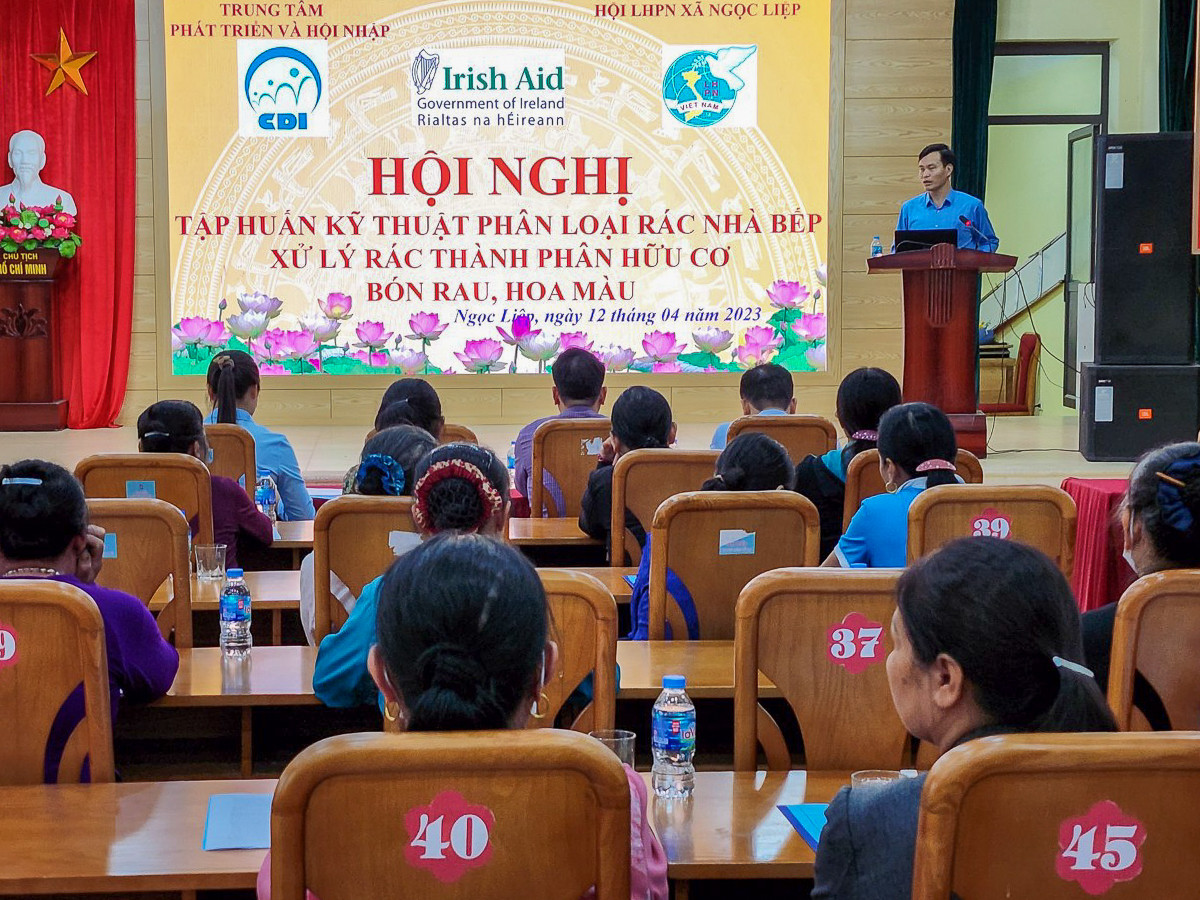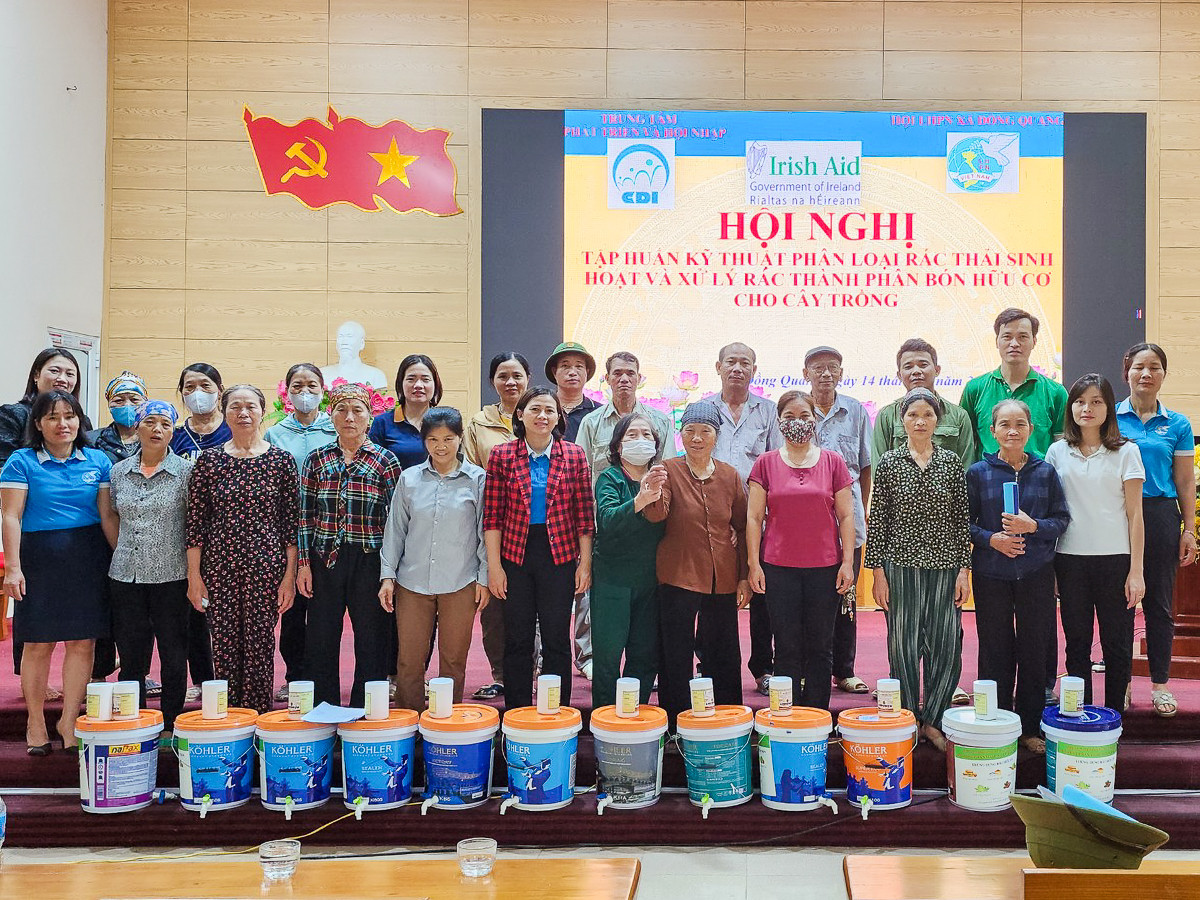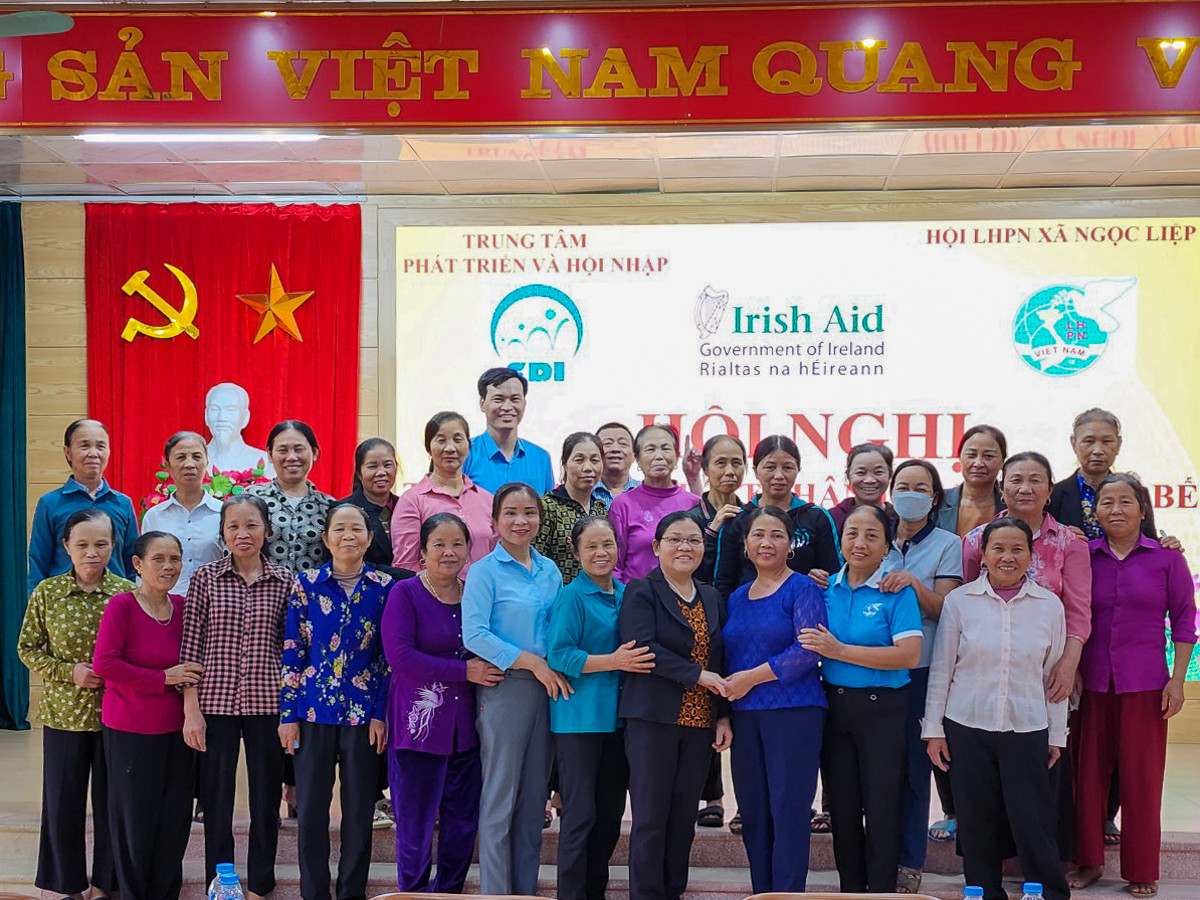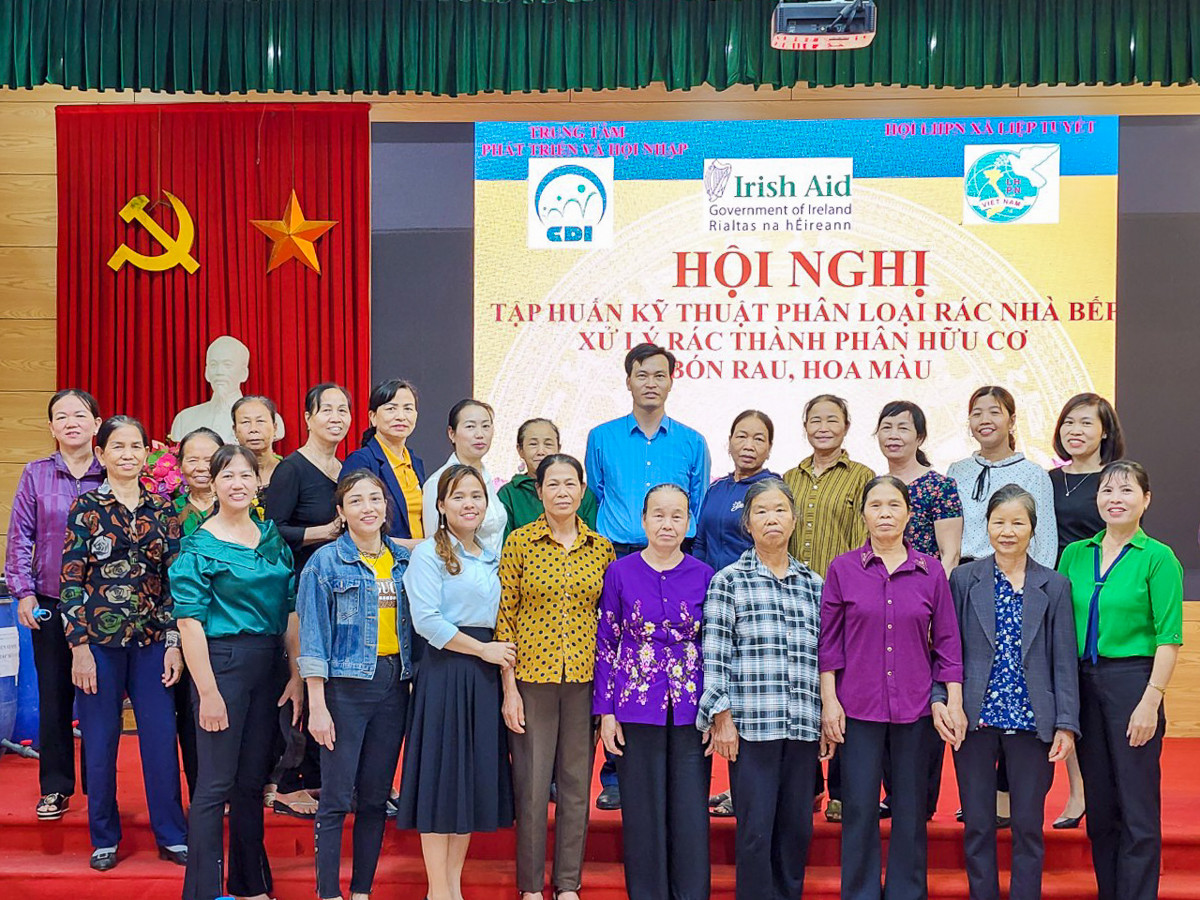Ứng dụng vi sinh trong canh tác nông nghiệp bền vững tại huyện Quốc Oai
Ô nhiễm môi trường đang là một vấn đề nhức nhối không chỉ đối với những quốc gia đang phát triển mà ngay cả đối với nhiều quốc gia đã phát triển. Ở Việt Nam, tình trạng ô nhiễm ngày một trầm trọng hơn khi mà hiện nay, số lượng rác thải sinh hoạt đang bị đổ lẫn và đổ thẳng ra môi trường đang tăng về số lượng và tạo ra một áp lực lớn đến tới các đơn vị xử lý rác. Trên toàn quốc, lượng chất thải sinh hoạt ở các khu đô thị phát sinh 35.000 tấn mỗi ngày với tỷ lệ thu gom, xử lý hơn 85%. Con số này ở nông thôn là 28.000 tấn mỗi ngày và chỉ thu gom được khoảng 55% tổng lượng thải (báo cáo môi trường quốc gia 2016-2021).
Theo số liệu ước tính mỗi ngày cả nước phát sinh khoảng hơn 60.000 tấn, tuy nhiên, chỉ có khoảng 15% lượng rác thải thu gom được tái chế hoặc tái sử dụng. Số còn lại bị chôn trong các bãi chôn lấp rác, thải ra nguồn nước hoặc đốt tiêu hủy thông thường. Nhận thấy rác là nguồn tài nguyên lớn nếu chúng ta phân loại và xử lý đúng cách, trong năm 2022, dưới sự tài trợ của Irish Aid, Trung tâm Phát triển và Hội nhập đã phối hợp với Hội nông dân huyện Đan Phượng, Hội phụ nữ huyện Quốc Oai triển khai xây dựng trên 200 mô hình phân loại rác hữu cơ và ứng dụng vi sinh để xử lý rác làm phân bón hữu cơ tại 5 xã.
Sau một năm triển khai, đến nay, các mô hình đã phát huy tốt hiệu quả, tổng số rác hữu cơ được phân loại và xử lý ước tính lên đến 30 tấn, sau khi ủ mục đã tạo ra được khoảng 6 tấn phân hữu cơ hoai mục. Các hoạt động thiết thực này đã góp phần rất lớn làm giảm ô nhiễm môi trường, giảm chi phí thu gom vận chuyển rác, đồng thời giúp người nông dân giảm phụ thuộc vào phân bón hóa học cho các vườn rau nhỏ của gia đình giúp họ chủ động nguồn rau xanh chất lượng phục vụ cho cuộc sống.

Nhằm đẩy mạnh phong trào phân loại và xử lý rác hữu cơ làm phân bón cho cây trồng, Trung tâm Phát triển và Hội nhập phối hợp với Hội phụ nữ huyện Quốc Oai tổ chức các buổi tập huấn, chia sẻ kinh nghiệm phân loại và xử lý rác hữu cơ làm phân bón cho người dân các xã Ngọc Liệp, Liệp Tuyết, Đồng Quang, Nghĩa Hương, Đồng Xuân thuộc huyện Quốc Oai, thành phố Hà Nội từ ngày 12 đến ngày 14 tháng 4 năm 2023. Sau 3 ngày hội thảo, 230 học viên tham dự gồm các hộ đã và đang phân loại rác hữu cơ tại nhà hiểu rõ hơn vai trò và ý nghĩa của việc phân loại rác tại nguồn, biết cách ứng dụng vi sinh trong xử lý rác hữu cơ làm phân bón, đồng thời có thể tận dụng các phế phụ phẩm nông nghiệp khác ủ phân bón mang lại giá trị và hiệu quả.
Các học viên còn được chia sẻ cách làm phân hữu cơ từ các loại thủy hải sản tự nhiên sẵn có tại địa phương như cách ủ cá, ủ ốc làm phân bón, đây là loại phân bón có giá trị dinh dưỡng cao, phù hợp với nhiều loại cây trồng. Việc áp dụng tốt quy trình ủ sẽ cho ra sản phẩm giàu dinh dưỡng với giá rất rẻ góp phần tăng thu nhập cho bà con nông dân. Ngoài ra các học viên còn được hướng dẫn chia sẻ kinh nghiệm sản xuất phân bón từ các loại hạt như ủ phân từ hạt đậu tương, lạc v.v. cách làm thuốc phòng trừ sâu bệnh hại bằng các thảo dược sẵn có tại địa phương như tỏi, ớt, gừng, riềng, xả v.v. góp phần hạn chế tối đa việc sử dụng phân bón và hóa chất bảo vệ thực vật độc hại trong sản xuất.



